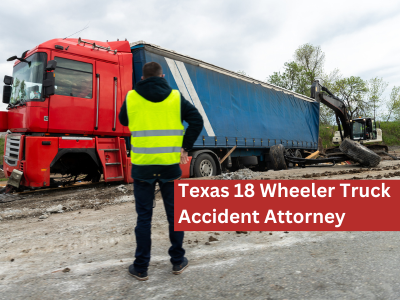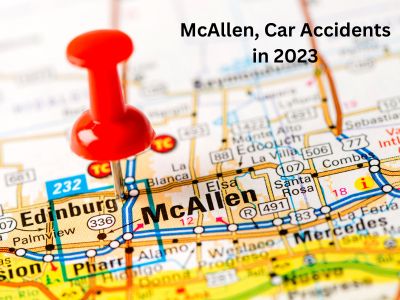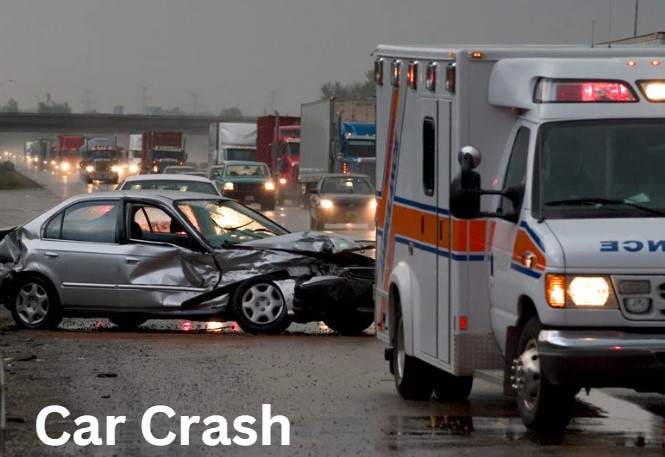
What To Do If You Are Involved in a Car Accident During the Holidays
Car Accidents Personal InjuryThe holiday season sees a spike in traffic due to people traveling to visit family and friends. This increased volume on the roads in the Rio Grande Valley and across the US, coupled with the potential for adverse weather conditions and holiday-related distractions, significantly raises the risk of car accidents. Being aware of these factors can help you stay vigilant and prepared.
Immediate Steps After a Car Accident
When you find yourself involved in a car accident during the holidays, the immediate steps you take are crucial. First and foremost, remain calm and check for injuries. Your safety and the safety of others are the top priorities.
Ensuring Safety and Preventing Further Harm
After an accident, if your vehicle is in a dangerous position, try to move it to the side of the road if possible. Turn on your hazard lights to alert other drivers. This can help prevent additional collisions and keep you safe while you assess the situation.
Contacting Emergency Services
Call 911 immediately to report the accident. Provide them with accurate information about your location, the number of vehicles involved, and any injuries sustained. Prompt communication with emergency services ensures that help arrives quickly.
Providing First Aid if Necessary
If someone is injured and you are trained in first aid, provide assistance while waiting for emergency responders. Even basic first aid can make a significant difference in stabilizing injuries until professionals arrive.
Documenting the Accident Scene
Use your smartphone to take photos of the accident scene from multiple angles. Capture the damage to all vehicles involved, any visible injuries, and the surrounding area. These photos can be invaluable when filing an insurance claim or if legal action becomes necessary.
Gathering Information from Other Parties
Exchange contact and insurance information with the other driver(s) involved. This should include names, phone numbers, addresses, driver’s license numbers, license plate numbers, and insurance details. Also, gather contact information from any witnesses.
Communicating with Law Enforcement
When the police arrive, provide them with a clear and accurate account of what happened. Stick to the facts and avoid speculating about who is at fault. The police report will be a critical document for insurance and legal purposes.
Reporting the Accident to Your Insurance
Notify your insurance company about the accident as soon as possible. Provide them with all the relevant information and documentation you have gathered. Prompt reporting can expedite the claims process and help you get your vehicle repaired quickly.
Handling Interactions with the Other Driver
Stay calm and respectful when interacting with the other driver involved in the accident. Avoid admitting fault or making accusations. Simply exchange the necessary information and wait for the authorities to handle the situation.
Dealing with Witnesses and Bystanders
If there are witnesses to the accident, ask for their contact information and if they are willing to provide a statement. Their accounts can be valuable in corroborating your version of events.
Understanding Your Legal Rights
Familiarize yourself with your legal rights following a car accident. This includes understanding your right to seek compensation for damages and injuries, as well as knowing the time limits for filing a claim.
Managing Stress and Emotional Aftermath
Being involved in a car accident can be a traumatic experience. It’s important to address any emotional distress and seek support if needed. Talking to a counselor or joining a support group can help you cope with the aftermath.
Steps to Take if Injuries Are Involved
If you or anyone else involved in the accident has sustained injuries, seek medical attention immediately. Even if injuries seem minor, it’s important to get a professional evaluation. Some injuries may not be apparent right away.
Handling Vehicle Damage
Assess the damage to your vehicle and take detailed photos. This will be important for your insurance claim. If your car is not drivable, arrange for it to be towed to a repair shop.
Filing an Insurance Claim
When filing an insurance claim, provide all the information and documentation you have collected. Be prepared to answer questions and provide additional details as needed. Your insurance company will guide you through the process.
Choosing a Repair Shop
Select a reputable repair shop to handle the repairs on your vehicle. Your insurance company may have preferred shops, but you have the right to choose where your car is repaired.
Understanding Insurance Adjuster Roles
Insurance adjusters will assess the damage to your vehicle and determine the amount your insurance company will pay for repairs. Cooperate with the adjuster and provide any additional information they may need.
Potential Legal Actions and Considerations
Depending on the severity of the accident and the circumstances, you may need to take legal action. This could involve pursuing compensation for damages or defending yourself against claims from others involved.
Preparing for Possible Court Cases
If the accident leads to legal proceedings, gather all relevant documentation and seek legal advice. Being well-prepared can make a significant difference in the outcome of your case.
The Importance of Legal Representation
Consider hiring a lawyer if the accident results in serious injuries or significant property damage. A lawyer can help you navigate the legal process and ensure your rights are protected.
Understanding Holiday-Specific Laws and Regulations
Be aware of any holiday-specific laws or regulations that may affect your case. This could include special traffic laws, increased penalties for certain violations, or other factors unique to the holiday season.





